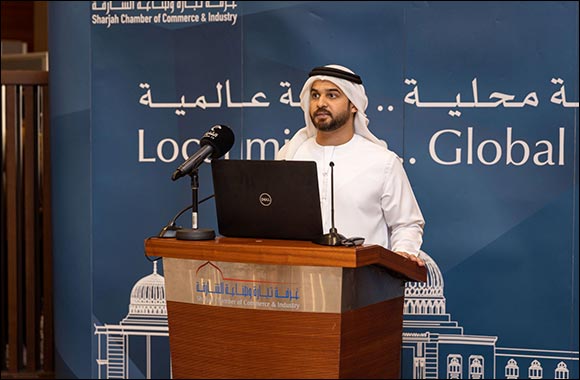More than 200 Arab publishers have discussed best publishing standards and practices at a training session organised by the Sharjah Book Authority (SBA) in the run-up to the 12th Sharjah International Book Fair (SIBF) Publishers Conference which opened tomorrow at Expo Centre Sharjah.
As part of the pre-event activities of the annual SIBF Publishers Conference, SBA organised today (Saturday), the 'NYU training programme for Arab publishers' in partnership with the School of Professional Studies, New York University.
Held at the Sharjah Chamber of Commerce and Industry, the programme included two specialised workshops that highlighted strategies to enable small and independent publishing companies achieve commercial success by identifying changing tastes of target audiences, selecting a well-defined reader base, and employing agile marketing and social media.
The training programme highlighted international standards and equipped Arab publishers with the knowledge and expertise to reach global markets. The training programme emphasised strategic planning and the need to think long-term while continuing to maintain the integrity and quality of the business.
Innovative strategies
In his welcoming speech, Mansour Al Hassani, Director of Publisher's Services at SBA, emphasised the importance of the 'NYU training programme for Arab publishers' in inspiring book publishers to find new ways to reach their audiences and create innovative marketing strategies.
He said: 'The programme provides Arab publishers with a unique opportunity to exchange knowledge and expertise and to generate new initiatives that will advance the publishing sector in the region. I am confident that every participant with us today is looking forward to receiving gainful insights to strengthen and enhance their contributions to the industry.”
Knowledge in the publishing sector
In her introductory speech, Andrea Chambers, Associate Dean, School of Professional Studies, stressed the importance of equipping oneself with skills and knowledge relevant to the publishing industry, noting that this is a key element to ensure their success. She highlighted the need to focus on scientific developments in the publishing sector to enable stakeholders advance the industry with new skills.
She pointed out that academic training is essential to provide publishers with the knowledge to grow, identify markets and build on their marketing skills. She noted that being prepared for the future can only stem from an understanding of the sector's current needs.
Limitless Possibilities
Under the title 'Limited Scale: Limitless Possibilities', Kirsty Melville, President, Andrews McMeel Publishing, led a discussion on how the pandemic prompted the publishing sector to find viable alternatives to ensure that titles reach readers, especially children and youth. She noted that digital platforms now provide publishers with new and diverse ways to reach their audience without intermediaries.
She stressed that independent publishers must be creative and agile and utilise advanced supply chains and digital platforms that employ cloud computing, in addition to using social media platforms to connect with the audiences and expand their reach.
Going Global
In the second session titled 'Going Global: How to Take a Local Publishing Company to International Heights', Edison Garcia, Sr. Manager, International Sales, Ingram Content Group, highlighted efficient ways of employing smart marketing and social media to serve the growing publishing sector.
The session emphasised the need for publishers to adopt modern technologies and understand their target audience, including their geographic location and cultural background, to produce valuable content that appeals to their readers.
Following the conclusion of the two workshops, lively Q&A sessions explored practical approaches to enable Arab publishers to benefit from global experiences and adapt them to the unique needs of the Arab world. Participants pointed out commonalities amongst readers from around the world that publishers can rely on to reach readers from across cultures, which has been fundamental to the growth of the translation sector globally and which serves as a bridge between cultures.













